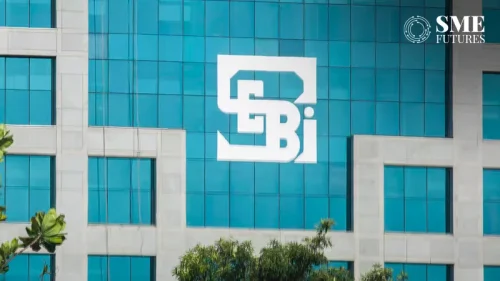As the new government settles in following the 2024 general elections. There is a significant expectation in the markets the Indian business community. Leaders are voicing strong expectations for economic stability and growth. Industry leaders are optimistic about the potential for significant advancements in manufacturing, infrastructure, and financial sectors under the re-elected administration.
The erstwhile Modi government has formalised plans and strategies to enhance the growth prospects for India over the next five years through a 100 Day Blueprint. The economy has seen a bumper GDP growth of 8.2% in FY24 driven by robust public investments and a strong revival in the industrial sector. While most of the forecasts for economic growth in the current year are below or at 7.0% given the base factor that is likely to catch up, the government is optimistic that it can average a GDP growth between 7%-8% in the next five years.
According to the Acuité Ratings & Research analysis the new government will not just endeavour to propel India’s GDP and growth figures but also take the country towards those milestones and metrics that will help become a developed nation by 2047 (Amrit Kal). Analysts believe that the govt will focus on several sectors post elections–
- Expand the indigenous manufacturing sector through several existing and new programmes which will lead to employment generation and export opportunities.
- Further build on the work done on the infrastructure sector to take connectivity and logistics across India to the next level; strengthening the quality, coverage and efficiency of the Indian railway network is the priority on the infrastructure front.
- Expedite not just renewable energy capacity additions to meet emission goals but also reduce dependence on imported fuels over the longer run; adopt and implement strategies such as solar rooftops and energy generation from bio-waste.
- Build new urban infrastructure (smart cities) with resilience to climate risks which will help to decongest the existing cities; in the latter, build affordable housing infrastructure for lower income people.
- Healthcare and insurance coverage will receive a lot of attention given that it’s an import element in the quality of citizens’ lives.
- Push agricultural reforms to augment farmers’ incomes, an agenda that is yet to make substantial progress
The sectors that are likely to witness a significant uptick in the medium term are; - Renewable Energy, Healthcare, Insurance, Defence, Construction, Railways, Housing and Real Estate and Agriculture
The sectors that are likely to witness a significant uptick in the medium term are;
Renewable Energy, Healthcare, Insurance, Defence, Construction, Railways, Housing and Real Estate and Agriculture
Driving Economic Development and Innovation
Dr. Ajai Chowdhry, Co-Founder of HCL and Chairman of the EPIC Foundation, highlighted the importance of stability and continuity in the government’s policies. He emphasised that the next five years will be crucial for India’s positioning on the global stage.
“The policies of the incumbent government have added significant thrust to economic development and fast-tracked infrastructure development. The next five years will prove pivotal in positioning India as a Product Nation in areas such as Electronics, Semiconductors, Space Tech, EVs, drones, and Medtech,” said Dr. Chowdhry.
He believes that India must develop its design and manufacturing capabilities to reduce dependence on China and create a favorable environment for private sector investment in R&D, which will drive innovation and product creation. The focus on Aatmanirbharta, or self-reliance, should now transition to value-added manufacturing and the creation of ‘design in India’ products to establish India as a creator of global brands.
Transforming Manufacturing and Infrastructure
Rahul Garg, Founder and CEO of Moglix, an e-commerce platform for industrial tools and equipment, sees the election results as a catalyst for transformative change. “In the wake of the election results 2024, we stand at the cusp of a transformative era. As technology rapidly evolves, we foresee a significant shift in India’s manufacturing and infrastructure sectors,” stated Garg. He envisions India as a global leader in sectors like pharmaceuticals, electronics, semiconductors, automobiles, textiles, and rare earth minerals. Moglix aims to contribute to this transformation by providing advanced supply chain solutions and fostering innovation in the manufacturing landscape. “This exciting phase presents a unique opportunity for all stakeholders to collaborate and harness the power of innovation,” he added.
Boosting Fund Management and Investment
Ashish Aggarwal, Managing Director of Acube Ventures, noted the positive impact of the government’s policy agenda on making India a hub for fund management. He remarked on the favorable tax policies that have encouraged international fund firms to move their operations to India, thus enhancing India’s competitiveness as a fund management destination.
“The general election result’s largest consequence has been the government’s policy agenda for making India a fund manufacturing center. Offshore funds managed from India have got a big thumbs up with a tax pass-through status which has benefited the asset management space big time,” Aggarwal observed.
Enhancing Personal Financial Management
Siddharth Maurya, Founder and Managing Director of Vibhavangal Anukulakara Private Limited, praised the new government’s policies for opening up opportunities in personal financial management. He highlighted the increase in the threshold limit under the new tax regime and the proposal for higher rebates on housing loan interest as measures that will improve disposable income and make homeownership more attractive.
“The increase of the threshold limit under the new tax regime to one lakh rupees and the proposal for increasing the limit of the rebate on interest towards housing loans to Rs 5 lakh have benefitted consumers through improved disposable income,” Maurya pointed out. These measures also boost retail participation in capital markets by promoting tax benefits on equity investments.
Navigating Market Volatility
Dr. Ravi Singh, SVP of Retail Research at Religare Broking Ltd., commented on the stock market’s reaction to the election results. While the initial exit poll numbers suggested a strong majority for the BJP, leading to a positive market reaction, the actual results showed the BJP falling short of the majority mark. This unexpected outcome led to a sharp decline in stock indices as investors adjusted to the new political landscape.
“The sectors most affected by this uncertainty were Public Sector Undertakings (PSUs), defense, energy, and railways,” noted Dr. Singh.











